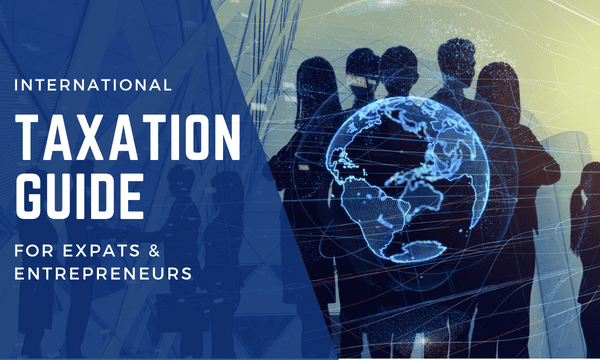
Navigating the Complexities of International Taxation: Essential Guide for Expats and Global Entrepreneurs
By: Joe Hillstead, Tax Partner
So you’ve decided to expand your horizons and move your business (or maybe even yourself and your family) beyond the borders of the United States. Whether you’re becoming an expat or a global entrepreneur, it’s an exciting time to venture out and explore a new part of the world.
Of course, there’s a lot that goes into becoming more international than before, especially when it comes to taxes. Some significant changes and challenges come from crossing borders, which affect both businesses and individuals alike.
This brief article should be used as a high-level summary of certain considerations (not a comprehensive tool) as you explore expat opportunities or global business expansion.
The Risk of Double Taxation
One thing to consider—strongly—when it comes to expanding beyond the U.S. is the possibility of double taxation, in which you or your business income are taxed by two or more countries. Lately, this issue has created even more anxiety for transfer pricing professionals, due to ongoing global tax reforms. It can be a labyrinth to navigate, especially depending on which countries may stake a claim on you or your business’ income.
The EU’s Tax Reforms Mark a New Era
If you’re headed to Europe for your business, you’ll want to be informed on the latest tax reforms affecting nations in the European Union. Two major reforms, one called VAT in the Digital Age and the other called Customs Union Reform, have broadened the scope of tax collection and made its mechanisms far more stringent. This has a big impact on e-commerce and platform-based businesses.
US Tax Proposals: A Quick Rundown
For those still keeping one foot in the United States, it’s important to note the latest tax proposals from Uncle Sam. The fiscal year 2024 budget includes a proposal to increase the U.S. corporate income tax rate from 21% to 28%, and proposed reforms to U.S. international tax rules that include raising the tax rate on the foreign earnings of U.S. multinational corporations from 10.5% to 21% and adopting an undertaxed profits rule, which targets multinationals in low-tax jurisdictions. Essentially, this rule is part of a global effort to ensure big businesses pay their fair share, no matter where they generate their profits.
Marketplace Facilitator Laws: E-Commerce’s New Frontier
If your business is in the digital marketplace, Marketplace Facilitator Laws in the U.S. are vital to know. These laws require platforms like online marketplaces to collect and remit sales tax on behalf of internet sellers. But here’s the kicker: the rules vary from state to state. It’s as complicated as it sounds, but it’s also crucial for keeping your business on the right side of the tax law.
Global Taxes Made Easier
Perhaps knowing how complex these issues can be, there is a growing trend around the world to simplify tax compliance. The European Union’s latest reforms are a major example of this movement. Tax officials are debating on how to make this easier and more business-friendly, including the idea of a single VAT registration instead of multiple registrations for businesses in different member states.
Expatriate Tax Considerations
No matter where you’re headed after you bid farewell to the United States, you’ll have to be up to date on the tax laws and practices for your home. The rules and changes are so vastly different from country to country, that it’s essential to do your research on the specific country you have in mind. Compliance and tax optimization are always possible, but being vigilant and informed is key.
As the tax code changes year to year, it does as well around the world. Expats and global entrepreneurs alike are in for many challenges when it comes to getting up to speed on their taxes as they move to a new country. Expert advice is key, so reach out to a CPA at Squire to help you navigate your next move.